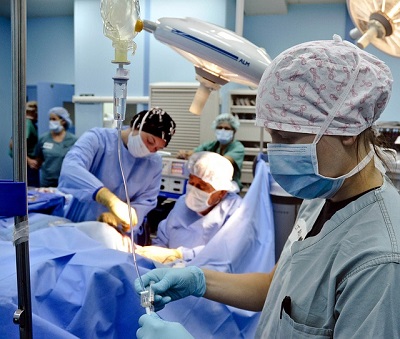Is Hysterosalpingography Harmful to the Body?
For many women, the journey to conception may involve various tests and diagnostic methods. Among these, hysterosalpingography (HSG) is a common test that often raises concerns. When it comes to their health and fertility issues, women tend to be particularly cautious and worried: is hysterosalpingography harmful to the body?

Hysterosalpingography is a procedure in which a contrast agent is injected into the uterus and fallopian tubes. Then, X-ray or ultrasound imaging techniques are used to observe the shape and patency of the fallopian tubes and the structure of the uterus.
So, does this test cause harm to the body?
To answer this question, we need to analyze it from multiple perspectives.
From the procedural perspective, HSG mainly involves operations through the vagina and cervix within the uterine cavity. Generally, it does not directly damage the endometrium and is not harmful to the body, so there is no need to worry excessively. Although there may be abdominal pain and vaginal bleeding, these symptoms are usually short-lived and mostly resolve on their own.
However, suppose the procedure is improper, and the instruments cause significant irritation to the endometrium. In that case, it can be harmful to the body, potentially leading to increased abdominal pain or vaginal bleeding that lasts longer and even causes infections.
Regarding safety, the contrast agents used in modern hysterosalpingography are usually strictly selected and evaluated for safety. Generally, these contrast agents are metabolized and excreted from the body relatively quickly and do not cause long-term adverse effects.
However, some potential risks and adverse reactions cannot be completely ruled out. For example, X-rays can produce a certain amount of radiation that can negatively impact the body, but this impact is relatively small.
Many patients may experience chest tightness, nausea, shortness of breath, and dry heaving. Some patients may also have allergic reactions to the contrast agent used in hysterosalpingography, resulting in dizziness, headache, and difficulty breathing. These side effects usually gradually disappear after the hysterosalpingography is completed.
During hysterosalpingography, iodine or other medications may be used, and some women may experience varying degrees of abdominal pain after using these medications.
So, how can we minimize the discomfort and risks that hysterosalpingography may bring?
Choose a reputable medical institution and experienced doctors. They can skillfully perform the procedure, reducing unnecessary injuries and complications.
Be well-prepared before the examination. This includes following the doctor's instructions for related examinations, such as gynecological exams and routine leukorrhea tests, to rule out contraindications like inflammation. Also, stay relaxed and avoid excessive tension and anxiety, as emotional stress can exacerbate discomfort.
Finally, post-examination care should not be ignored. It is essential to rest, maintain the cleanliness of the vulva, and avoid sexual intercourse and bathing for a short period to prevent infection.
Antibiotics are generally used for treatment if hydrosalpinx or tubal blockage is detected. Besides antibiotics, a more conservative Traditional Chinese Medicine, such as the Fuyan Pill, can also be chosen. Fuyan Pill, as a complete formula, is the result of Dr. Lee's 30 years of medical knowledge and clinical practice. The main characteristics of this pill are its bactericidal solid properties, which can kill various bacteria in about three months, and its thorough anti-inflammatory effects, thus helping to unblock the fallopian tubes and eliminate gynecological tissue lesions.
In conclusion, hysterosalpingography, a critical gynecological examination method, may cause temporary discomfort and potential risks during the procedure, but in most cases, these are controllable. Women who need it should not refuse the examination due to excessive worry about possible harm.
You may also be interested in:
Are You in The 4 Types That Need Hysterosalpingogram(HSG)?
Perform Hysterosalpingogram if You Can't Get Pregnant? Doctor: Not Recommended in These 4 Cases!
For Blocked Fallopian Tubes, What Other Tests Can You Have Besides HSG?
Testimonials
- Adenomyosis with Ureaplasma Urealyticum Cured by Fuyan Pill
- Tubal blockage with hydrosalpinx can be cured by TCM shortly
- Fuyan Pill Helps A woman with Adenomyosis Get Pregnant
- A Woman with Hydrosalpinx Is Cured with Fuyan pill
- Pelvic Inflammatory Disease Testimonials
- Irregular Vaginal Bleeding and Endometrial Thickening Cured by Fuyan Pill
- Pruritus Vulvae and Frequent Urination: Mycoplasma Infection Cured after 2 Courses



